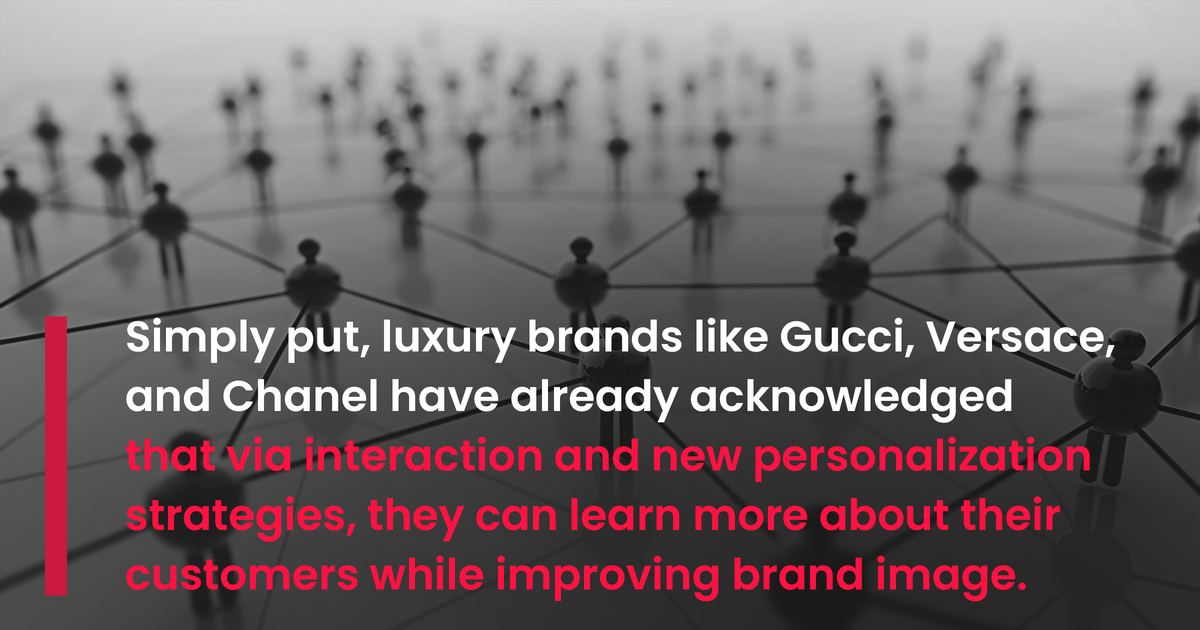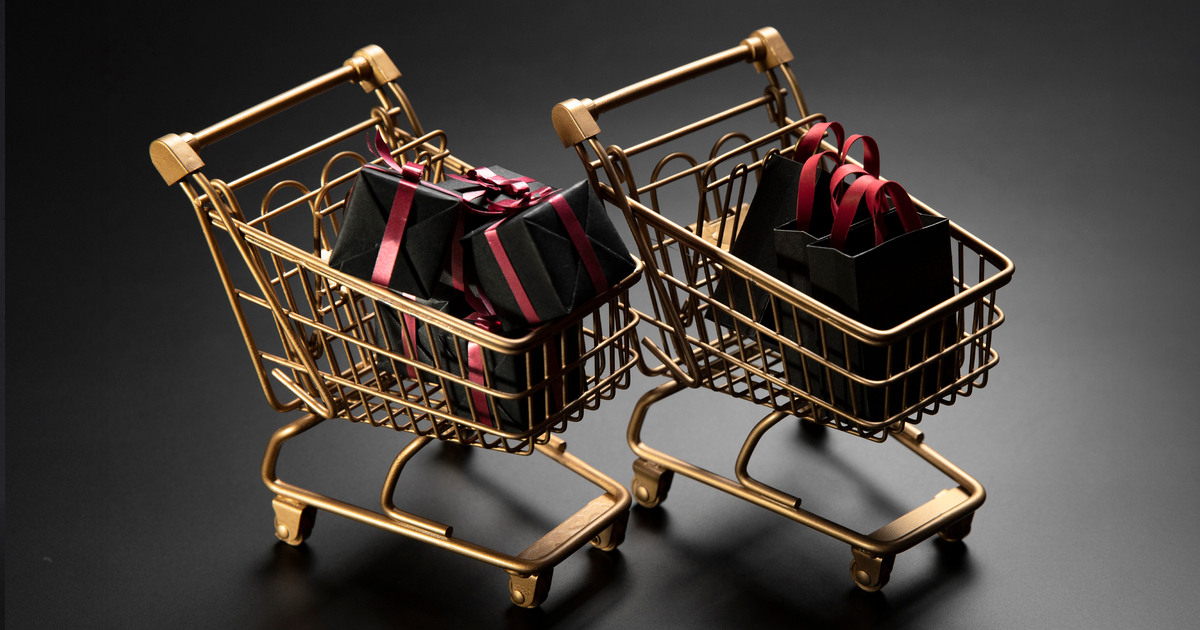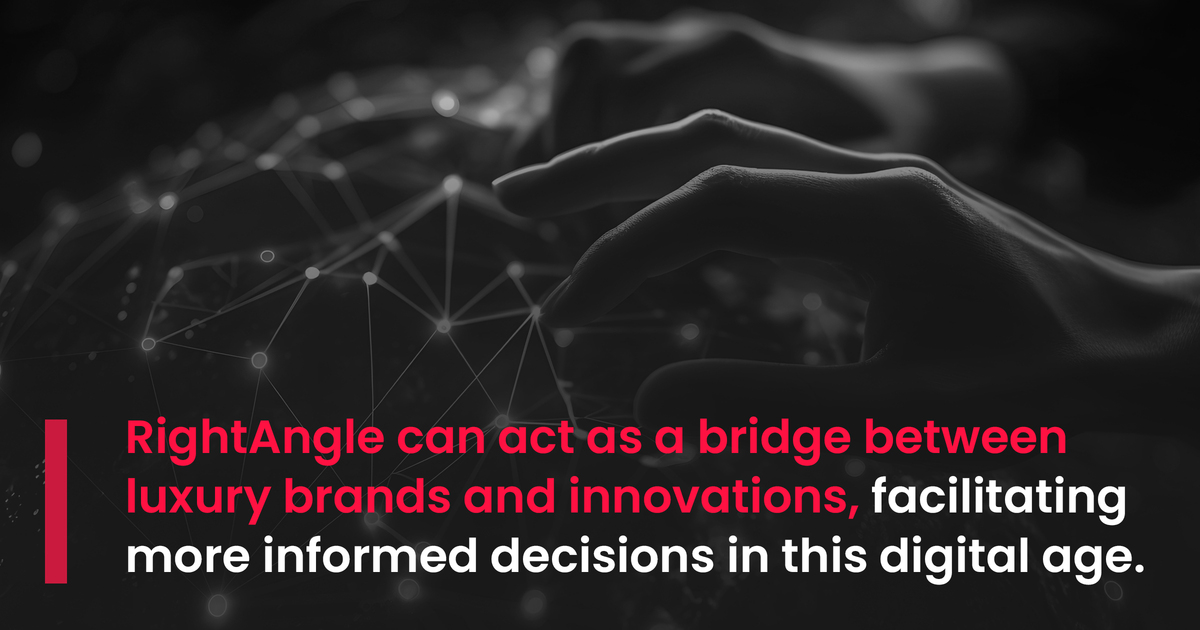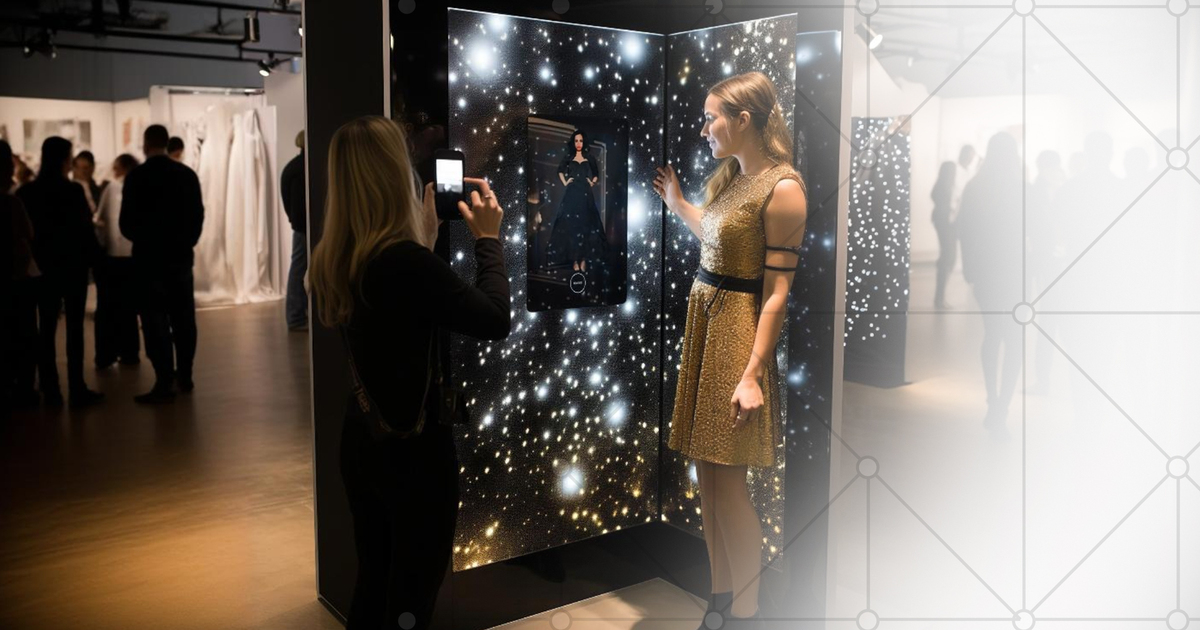High-end goods, improved customer experience, and an overall sense of comfort—these are the things that people have come to expect from a luxury experience. These expectations have not changed with the evolution of the digital and online worlds.
However, the one thing that has changed is the way to attract the attention of high-end clientele and offer the sense of an extraordinary experience right from the first digital contact. This is one reason why luxury brands invest heavily in digital customer interaction.
- What do we know about tech development in the area of customer experience?
Customer service and tech development are going hand in hand as an increasing number of customers turn to digital browsing before visiting a physical store.
Here are a few brief statistics that may (but should not) surprise you.
- 74% of consumers want a flawless online experience replicating the features often offered over the phone or in person, according to Salesforce.
- 66% of consumers from all age groups and locations first visit a brand’s website prior to going to the physical store, according to Bain & Company.
- 68% of employees believe GenAI will assist them in improving their service.
- 73% of clients anticipate better personalization (in terms of tech advances).
Luxury brands going digital
Following current digital trends, firms offering luxury consumer goods, particularly those in the clothing industry, have decided to redesign their digital and marketing strategies.
Going online, they have attempted to differentiate their products and services from their rivals and improve communication with high-end customers.
 Emphasizing social media for enhanced luxury delivery
Emphasizing social media for enhanced luxury delivery
One aspect that many luxury lovers share is the desire to let other people know about their experience of recently acquired products and/or services from luxury brands. The best way to do this is by sharing their photos and opinions online.
Luxury brands’ digitalization
Since customers frequently choose to visit a luxury brand’s official website before going to the physical store, it is no surprise that brands are trying to develop a more personalized level of service for the digital experience. The tools used for this range from AI to innovative 3D tech services.
Giorgio Armani Innovative 3D Tech Service

*This image is not associated with Giorgio Armani and is intended solely for creative purposes.
For instance, Giorgio Armani now offers a fully digital configuration system to customize clothing using 3D technology that helps clients to create their own outfits by mixing styles and materials. As soon as a customer completes their outfit, they can take part in a video consultation to finish their shopping and are also able to choose to visit a physical store if an in-person interaction is preferred.
Gucci, Burberry, LVMH Bernard Arnault
 Gucci uses AI to forecast future fashion trends, and Burberry uses this technology to personalize its chatbots and interactive applications.
Gucci uses AI to forecast future fashion trends, and Burberry uses this technology to personalize its chatbots and interactive applications.
Meanwhile, LVMH CEO, Bernard Arnault, has made investments of over US$300 million in multiple AI startups via his firm, Aglaé Ventures.
Luxury brands targeting younger consumers
Gen-Z holds enormous opportunities for luxury brands. Experts predict that by 2030 this generation will be responsible for around a third of all luxury purchases, which is why luxury brands are paying more attention to the younger demographic.
One example of such a strategy is Chanel’s ‘Chance the Game’ platform, which it introduced in 2024. Players can personalize their characters on a virtual funfair in order to engage in mini-racing games and access exclusive seasonal features.
Guiding luxury brands through digital transformation
RightAngle connects brands with industry specialists who can provide strategic insights into market trends, customer behavior, and technological advances.
Since it’s a difficult task for luxury brands to make a high-end product stand out in a small luxury market where production is highly labor-intensive, this is useful for luxurious consumer goods producers too particularly in view of their narrow market and target audience.
 Niche and highly experienced professionals can provide much-needed advice and by leveraging this expert knowledge, luxury brands can not only stay afloat but evolve by adapting or launching their new digital strategies, personalizing customer experiences, and predicting trends.
Niche and highly experienced professionals can provide much-needed advice and by leveraging this expert knowledge, luxury brands can not only stay afloat but evolve by adapting or launching their new digital strategies, personalizing customer experiences, and predicting trends.
Final word
It is more difficult to secure buying customers among luxury shoppers. Prior to selling any product, the brand must first identify the appropriate clientele.
What triggers customers to buy and fosters long-lasting ties with brands is constantly evolving and only brands that are willing to adapt will survive.
Suggested reading:
The Impact of Expert Networks on Customer Experience Strategies
Fintech Ecosystems: Future Trends and Expert Networks Impact
The Role of Expert Networks in Navigating the Real Estate Industry
Share to

